I usually make a point of keeping away from the big occasions such as the State Opening of Parliament, but made an exception on Wednesday May 27th 2015, partly because I had been told that Class War were planning to come and protest, but mainly as there were other events I was intending to photograph later in the day.
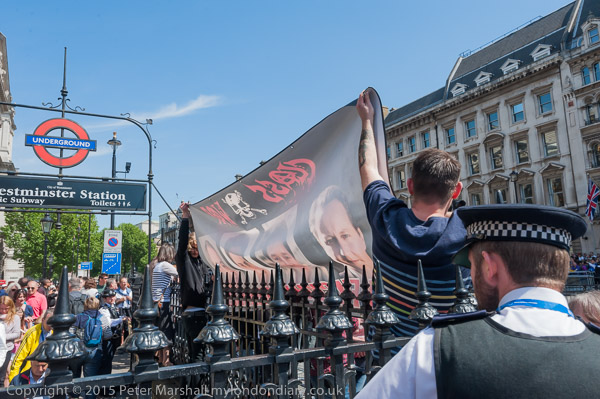
Class War arrived too late to reach the centre of Parliament Square where they had hoped to display their banner and the area was already tightly sealed off by police. Police security for royal events is always very tight and as on this occasion often goes well beyond what is legal. So although they managed to briefly display their banner well before the Queen’s coach arrived they were quickly forced to take it down and pushed away. Around 50 police then followed the dozen or so as they made their way to a nearby pub and a few more supporters, and stood around for an hour or so looking as if arrests were imminent before most of them moved off, but police continued to follow the group until they left Westminster. Two other people who had been showing posters against austerity in Parliament Square were arrested despite their actions being perfectly within the law; they were released without charge a couple of hours late.
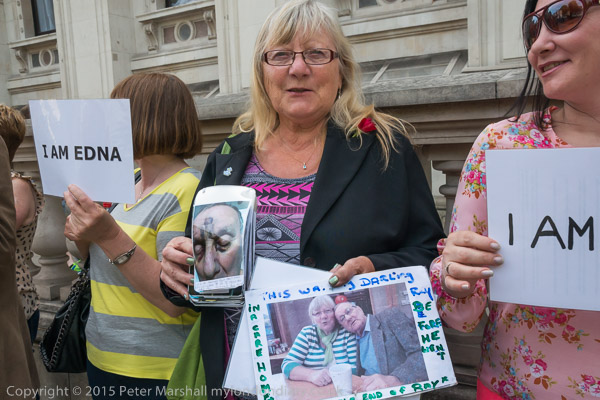
I walked from the pub up to Downing St, where a line of people from Compassion in Care where holding up posters and calling for ‘Edna’s Law’ which would make it a criminal offence to fail to act on the genuine concerns of a whistle-blower, and would make the state protect whistleblowers rather than them having to spend thousands of pounds on taking their cases for unfair dismissals to industrial tribunals. They say current law, the Public Interest Disclosure Act 1998 which has failed to protect the public, the victims or the whistle-blowers. So far nothing has changed.
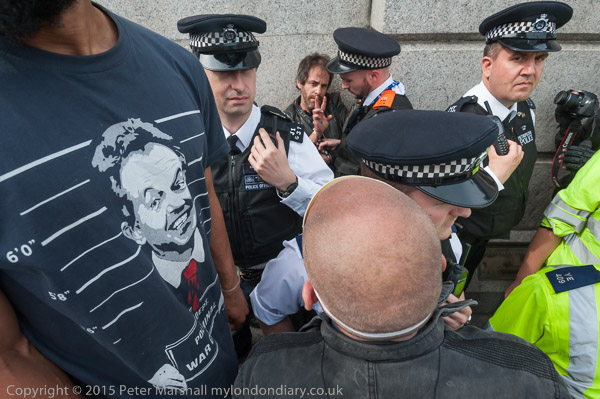
As I arrived in Trafalgar Square where people were gathering for a protest against education fees and cuts there was an angry scene when a squad of police surrounded and arrested a man, refusing to talk with any of those in the crowd around about their actions. Had they explained at the time that the man being arrested had been identified as someone who was wanted for an earlier unspecified offence and was being taken in for questioning, it would have defused the incident, but this was only revealed after the man – and one of the protesters who had questioned the police about their action – had been put into a police van a short distance away and driven off.
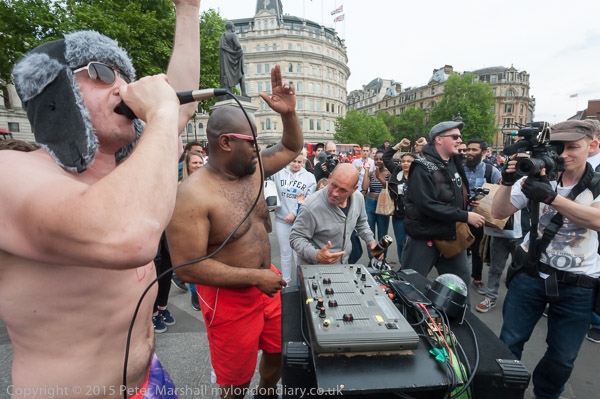
Back in Trafalgar Square there was music as we were waiting for the National Campaign Against Fees and Cuts protest to begin, provided by ‘Disco Boy’ Lee Marshall from Kent who had brought a mobile rig to Trafalgar Square. Apparently as well as running local discos he has a huge social media following.
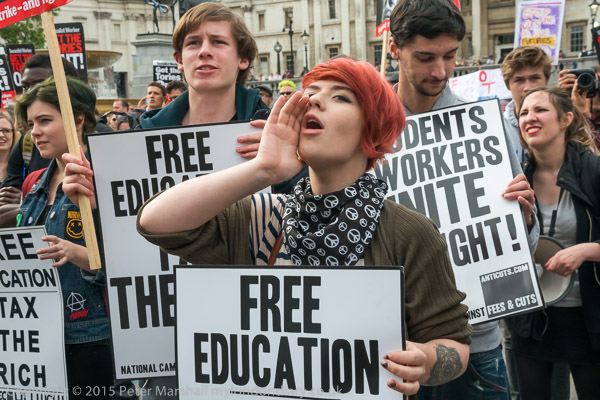
Finally the NCAFC protest got under way, with a good crowd of mainly students in Trafalgar Square and speakers on the plinth of Nelson’s Column.
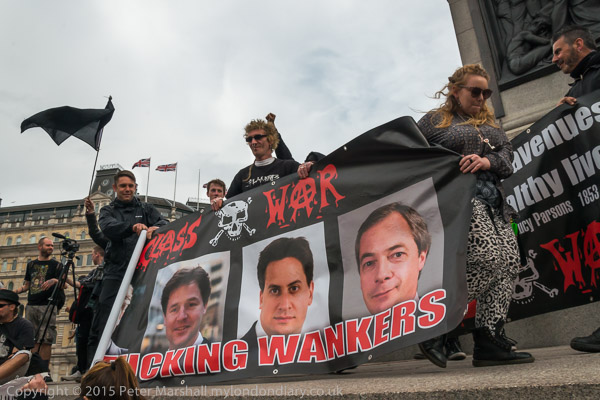
Class War came along (still followed by police) and there were cheers as they displayed their several banners; also taking the stage and marching with the students were the Hashem Shabani group of Ahwazi Arabs, who later held their own protest.
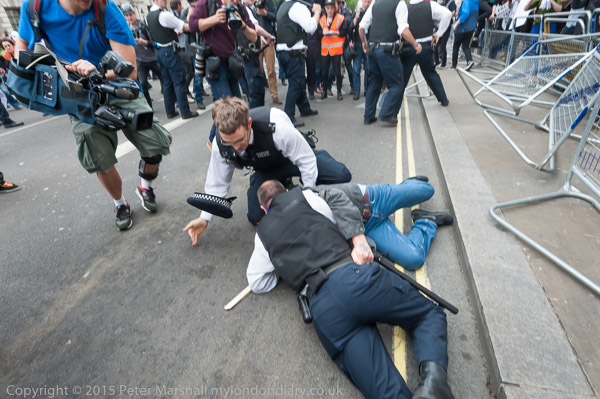
After the speeches in Trafalgar Square the NCAFC protesters set off to march to Parliament. Police tried to stop them with a line of officers and barriers at Downing St, but there were too few officers and many of the protesters walked around them and the barriers. Police apparently randomly picked on a few of the demonstrators and tackled them with unnecessary force making several arrests. The protesters continued marching around Westminster for some hours, but I left them at Parliament Square.
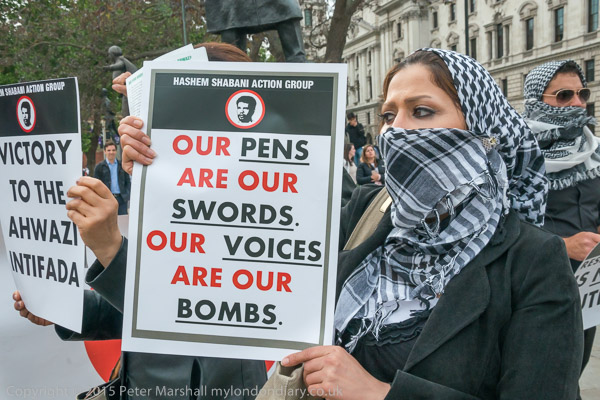
I finished my day’s work in Parliament Square with the Ahwazi Arabs who protested there against the continuing Iranian attacks on their heritage and identity since their homeland, which includes most of Iran’s oil was occupied by Iran in 1925. The occupation was important in protecting the interests of the Anglo-Persian Oil Company, effectively nationalised by the UK government in 1914 (later it became the Anglo-Iranian Oil Company and then in 1954, BP) and even after the nationalisation of Iran’s oil, BP remained a leading player in the consortium marketing Iranian oil.